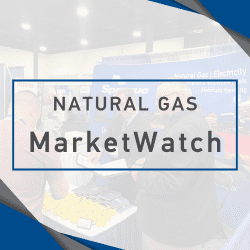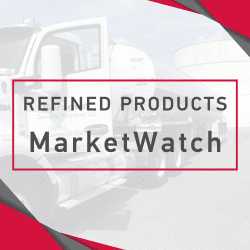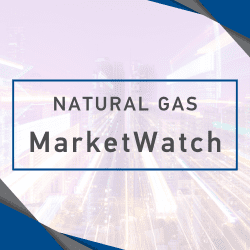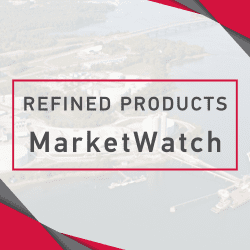Recap: The oil market on Monday continued on its upward trend, supported by increasing geopolitical concerns. There are fears of conflict in southern Lebanon in light of a military build-up, the possibility of Iran entering directly into a conflict and Russia’s potential to provide support to partners in the region amid a stagnation of negotiations between Israel and Hamas in Gaza. The market traded mostly sideways in overnight trading and looked ready to post an inside trading day. However, it breached its previous high of $82.72 by mid-day and rallied a high of $83.52 ahead of the close. The August WTI contract ended the session up $1.84 at $83.38 and the September Brent contract settled up $86.60 at $1.60. The August WTI contract later posted a new high of $83.64 in the post settlement period. The product markets ended the session sharply higher, with the heating oil market settling up 8.16 cents at $2.6147 and the RB market settling up 7.68 cents at $2.5783.
Technical Analysis: The crude market will likely retrace some of its sharp gains and settled in a sideways trading range ahead of the release of the weekly petroleum stocks reports, which are expected to show draws across the board. The oil market is seen finding resistance at its high of $83.52, $84.00, $84.09 and $85.27. Meanwhile, support is seen at its low of $81.38, $80.97, $80.51, $80.18 followed by $79.29, $79.17 and $77.98.
Fundamental News: The Department of Energy said the U.S. added 2.4 million barrels of sour crude to the SPR over the four week period that ended on Friday, bringing the stockpile to 372.6 million barrels. The SPR now holds 228.8 million barrels of sour crude and 143.8 million barrels of sweet crude.
IIR Energy said U.S. oil refiners are expected to shut in about 92,000 bpd of capacity in the week ending July 5th, increasing available refining capacity by 84,000 bpd. Offline capacity is expected to increase to 256,000 bpd in the week ending July 12th.
According to vessel-tracking data, about 20 ships loaded crude oil on Canada’s West Coast in the first full month of operation on the expanded Trans Mountain pipeline. The 20 vessels loaded were less than the 22 ships that Trans Mountain had initially expected to load for the month. Total crude exports from Vancouver were around 350,000 bpd with the last two vessels for June-loading at the Westridge Marine terminal. The vessels, partially loaded Aframaxes able to carry about 550,000 barrels each, mostly sailed to the U.S. West Coast and Asia. According to data providers LSEG, Kpler and Vortexa, some cargoes were loaded onto larger ships for delivery to India and China. The expanded Trans Mountain pipeline is running around 80% full with some spot capacity used. Trans Mountain forecasts 96% utilization from next year. It has capacity to load 34 Aframax ships a month.
Colonial Pipeline Co announced a freeze notice for Cycle 38 on Line 2, its main distillate line from Houston, Texas to Greensboro North Carolina. The allocation is for the pipeline segment north of Collins, Mississippi. Colonial Pipeline is also allocating space for Cycle 39 shipments on Line 2, its main distillate line.
U.S. manufacturing fell for a third consecutive month in June and a measure of prices paid by factories for inputs fell to a six-month low amid weak demand for goods. The Institute for Supply Management said that its manufacturing PMI fell to 48.5 in June from 48.7 in May.
S&P Global reported that its manufacturing PMI for the U.S. stood at 51.6 in June compared with a flash reading of 51.7.
Early Market Call – as of 8:20 AM EDT
WTI – August $84.16, up 78 cents
RBOB – August $2.6096, up 3.13 cents
HO – August $2.6521, up 3.74 cents










